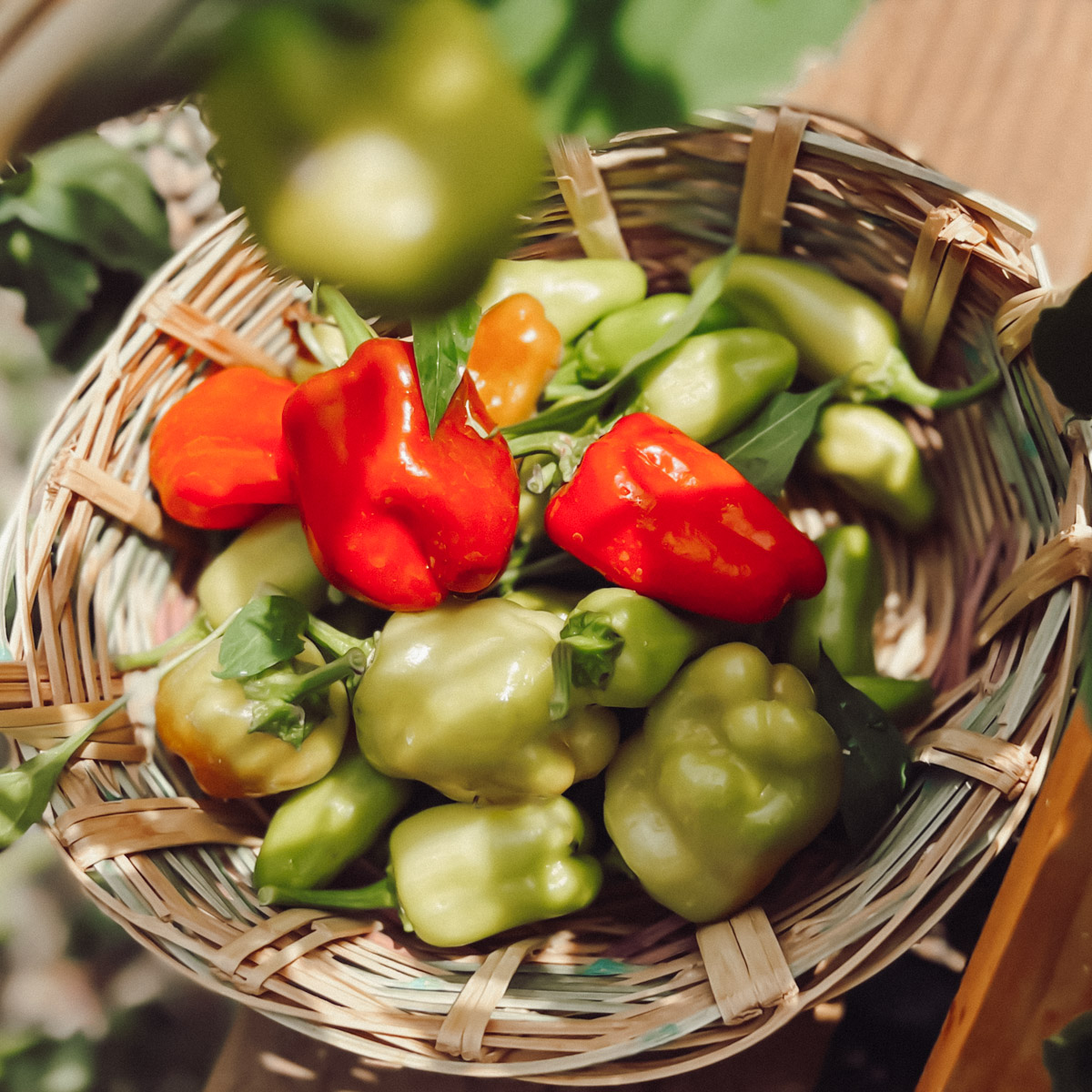Organic Vs. Synthetic Fertilizers: Which Is Best for Nurturing Healthy And Balanced Pepper Plants?
In the realm of nurturing healthy pepper plants, the selection in between synthetic and natural plant foods stands as an essential choice with significant implications. While both alternatives purpose to supply vital nutrients to sustain plant development, the nuances of their influence on the soil, plant health, and the environment spark a debate that mirrors throughout the gardening area. Recognizing the distinctive benefits and prospective risks of each fertilizer type is critical for pepper cultivators seeking to maximize their yields while keeping a sustainable and eco-conscious technique.
Benefits of Organic Fertilizers
Organic plant foods provide a lasting and environmentally-friendly strategy to nourishing pepper plants, giving necessary nutrients without the use of artificial chemicals. These all-natural fertilizers are originated from organic resources such as garden compost, manure, bone meal, and algae, promoting soil wellness and biodiversity. Unlike synthetic plant foods, organic choices launch nutrients slowly, making sure a well balanced and stable supply for pepper plants to grow.
One significant advantage of natural fertilizers is their capability to enhance dirt framework and water retention. By improving dirt health, organic plant foods advertise beneficial microbial activity, which assists in nutrient uptake by pepper plants. Additionally, natural plant foods decrease the threat of chemical run-off, protecting water sources from air pollution and safeguarding the atmosphere.
In addition, organic fertilizers contribute to lasting soil fertility by promoting the development of helpful soil microorganisms. These microorganisms aid break down organic matter, launching nutrients in a form that is quickly obtainable to pepper plants. best fertilizers for peppers. By promoting a healthy soil environment, natural fertilizers support sustainable pepper growing methods that benefit both plants and the atmosphere
Disadvantages of Synthetic Fertilizers
Artificial plant foods, in comparison to their natural equivalents, position various drawbacks when used to nurture pepper plants, influencing both plant health and wellness and environmental sustainability. One major downside of artificial fertilizers is their tendency to seep nutrients from the dirt swiftly.
Moreover, the overuse of synthetic plant foods can add to water air pollution. Excess plant foods not soaked up by plants can wash away right into water bodies, bring about eutrophication, where algae flowers diminish oxygen degrees in the water, harming marine life. Additionally, synthetic plant foods are normally originated from non-renewable sources, such as fossil fuels, adding to carbon emissions and ecological degradation during their manufacturing.
Nutrient Absorption Contrast
Efficient nutrient absorption plays a crucial function in the total health and development of pepper plants. When contrasting artificial and organic fertilizers in regards to nutrient absorption, natural fertilizers have the advantage of giving a more well balanced and slow-release resource of nutrients (best fertilizers for peppers). Organic fertilizers consist of a selection of macro and micronutrients that are not only beneficial for the plants but likewise advertise healthy soil microbial task, which assists in nutrient uptake. On the other hand, synthetic fertilizers usually offer a quick launch of nutrients, which can bring about leaching and overflow, leading to reduced nutrient absorption prices by the plants.
In addition, organic fertilizers enhance soil framework and water retention ability, allowing pepper plants to gain access to nutrients extra efficiently. This improved soil high quality assists in origin growth, enabling better nutrient absorption. Artificial plant foods, although at first improving plant growth due to their high nutrient concentrations, might impede long-term nutrient absorption by degrading dirt wellness gradually.
Environmental Impact Factors To Consider

On the other hand, synthetic plant foods, although typically more quickly offered and concentrated to plants, can have detrimental results on the setting if not used effectively (best fertilizers for peppers). Their manufacturing needs high energy inputs, resulting in greenhouse gas emissions and adding to climate modification. Moreover, the overflow of excess artificial fertilizers can pollute water resources, resulting in eutrophication and hurting aquatic environments.
Finest Plant Food Practices for Peppers
To achieve this, it is essential to follow ideal plant food techniques customized to the particular needs of pepper plants. One important method is to carry out a soil examination prior to applying any fertilizers.
An additional vital technique is to fertilize pepper plants at the correct time. Generally, peppers benefit from obtaining plant food at planting and after that once more when they begin to flower. Over-fertilizing can lead to vitamins and mineral inequalities and hurt the plants, so it is important to follow advised application rates.
Additionally, choosing a well balanced fertilizer with anonymous an NPK ratio that matches pepper plants' demands is fundamental. Organic fertilizers, such as garden compost or manure, can be exceptional options as they launch nutrients gradually and improve dirt structure over time. Artificial fertilizers can give a quick nutrient increase when needed. Inevitably, integrating organic and synthetic fertilizers carefully can help support healthy pepper plants while lessening environmental influence.
Verdict

Organic plant foods supply an environmentally-friendly and lasting approach to beneficial pepper plants, giving vital nutrients without the usage of artificial chemicals. Unlike synthetic fertilizers, natural alternatives launch nutrients slowly, making sure a balanced and stable supply for pepper plants to prosper.
Artificial plant foods, in comparison to their organic counterparts, position different negative aspects when made use of to nourish pepper plants, affecting both plant health and wellness and ecological sustainability. When comparing organic and synthetic plant foods in terms of nutrient absorption, natural plant foods have the advantage of giving an extra well balanced and slow-release resource of nutrients.In addition, natural plant foods boost dirt framework and water retention ability, permitting pepper plants to accessibility nutrients extra successfully.
Comments on “Best Fertilizers for Peppers: Achieve Superior Results in Your Yard”